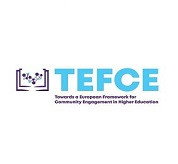TEFCE - Towards a European Framework for Community Engagement of Higher Education
The TEFCE project will directly contribute to this new agenda by proposing a framework for a common European approach to community engagement in higher education.
An international project has been launched to address a new priority on the EU’s policy agenda for higher education: the community engagement of universities. The project (entitled ‘TEFCE - Towards a European Framework for Community Engagement of Higher Education’) will develop tools to help universities to better interact with their communities at the local and regional level in order to address pressing social needs. The TEFCE project, which will last from 2018 to 2020, is led by the Institute for the Development of Education (Croatia) and Technische Universität Dresden (Germany) and will gather leading researchers, universities, local authorities and university networks from seven EU Member States.
One of the four priorities for action in the EU’s Renewed Agenda for the Modernisation of Higher Education (2017) is “building inclusive and connected higher education systems”, which means ensuring that “higher education institutions are not ivory towers, but civic-minded learning communities connected to their communities”.
The TEFCE project will directly contribute to this new agenda by proposing a framework for a common European approach to community engagement in higher education. The project will first take stock of existing research and initiatives that have attempted to measure the community engagement of universities. The project will then develop a “toolbox” that could assist universities and policymakers at the EU level in fostering greater community engagement and that could provide a meaningful measurement of an institution’s level of community engagement.
The project’s expert team will include researchers from the University of Twente (Centre for Higher Education Policy Studies), University of Ghent (Centre for Higher Education Governance Ghent), Dublin Institute of Technology, University of Rijeka (Faculty of Philosophy) and the Institute for the Development of Education. Universities and local authorities from the cities of Dresden (Germany), Dublin (Ireland), Enschede (Netherlands) and Rijeka (Croatia) will be piloting the developed toolbox, and additional expertise will be provided by the European Consortium of Innovative Universities, the Global University Network for Innovation (represented by the Catalan Association of Public Universities) and the Public Policy and Management Institute from Lithuania.
The TEFCE project is co-funded by the European Commission’s Erasmus+ programme through the Key Action 3: Forward Looking Cooperation Projects funding scheme, for which a call is published once every three years. The project was one of 17 projects selected for funding at the EU level (out of 78 applications).
